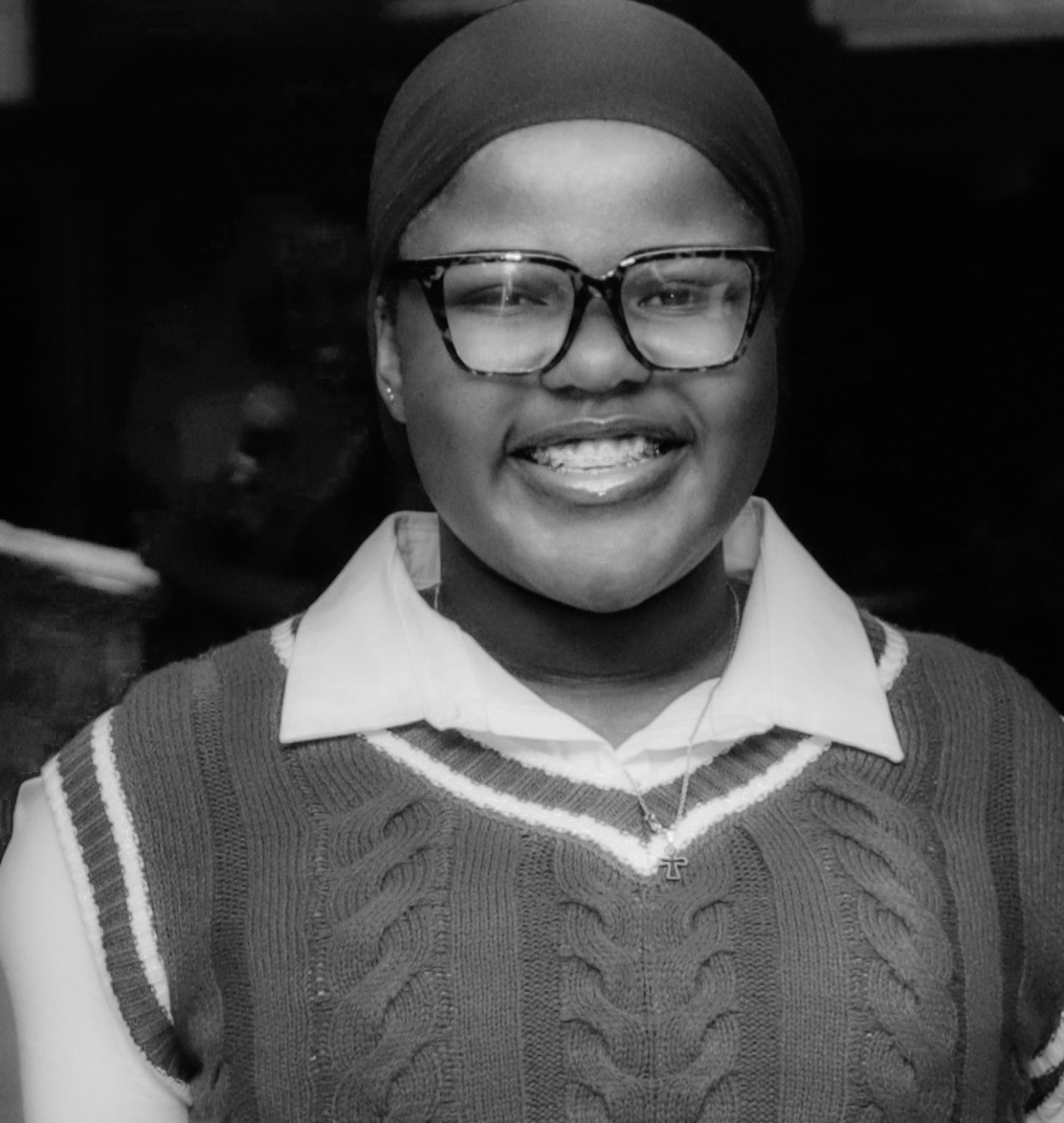Mingaphi iminyaka yakho?
No no no no. Why me?
I Don’t Understand What They Are Saying.
Sorry, I only speak English.
Hayi! Ngoba? You’re black and you don’t speak your mother tongue? You should learn, my girl!
Just force a smile. The stranger will leave you alone.
Hehe, I know.
Avoiding this song was impossible. It looped on repeat. It didn’t matter where I was but it would always find its way to my ears. They spoke. I stared blankly. Responding in English. Their expressions resembled disappointment.
Strangers were disappointed in me. That hurt more than when my parents were disappointed in me for trivial things. I was always left with an unexplainable emptiness. Why are they all saying the same thing? Why is it so wrong? Though I was too young to decipher their responses, one thing I could decipher was the way I felt. Extremely embarrassed. Embarrassed that I used my limited vocab such as ‘Yebo’ or ‘Ewe’ to answer a question. Embarrassed that I stood out like a sore thumb. But I mean imagine meeting a South African black child who could not speak her mother tongue. Absurd right?
In our cultures, it is emphasised that parents make a concerted effort to instil proficiency in their mother tongues in their homes. However, my parents were heavily engaged in work during my babbling days. They worked long hours which resulted in night stays at creches and less contact with them. Less time for them to speak to me in isiXhosa and isiZulu and more time for me to attach to the English-speaking caregivers. As a child, visiting extended family was where I felt most isolated. I would watch my parents boisterously greet my cousins, aunties, and uncles in elegant rolls and snaps of their tongues. The buzz of isiZulu swimming around the room while I sat there clueless as to what was going on. Amused laughs emerged when I stuttered my way through a sentence; my broken language a humorous spectacle to them. I felt humiliated that my family members would have to speak English to me whenever we visited. It shouldn’t have had to be that way. I knew that.
The Visit – A Creative Non-Fiction by Jessica Ireju – Nigeria
There is a very strict, unspoken criteria for what makes someone part of a certain culture, so lacking in essential components made me insecure whenever I would attempt to inhibit space as a ‘supposed’ black South African. So much culture is baked into a language, that a lot of my cultural literacy and connection became fragmented, and just out of reach. Naturally, I strayed away from my African identity. I felt rejected by my culture, so I only thought it fair to reject it back. So, I threw myself into English, fostering a love for reading and writing which positively shaped me into the person I am today.
Growing up in predominantly English-speaking private schools also aided in this affair. Being the only black child in a room of 30 white students made it easy for me to find comfort in them. We shared something in common (English) thus I grew closer to them and adopted their mannerisms, their music, their dialect but, this only created more problems than solved. I was nicknamed ‘Coco’ short for Coconut. Black on the outside but white on the inside. Phrases arose like, “You’re so articulate, public speaking would be your forte”, my English teacher, Mrs Maclaran would praise. I unknowingly fell victim to projected racial microaggressions by white people in my school. “I don’t see colour when we’re together”, my white best friend ignorantly once told me. Unfortunately, I was too blinded to see offence in those notions. I let it define my identity and felt it was all I was limited to.
The second time my identity was brought into question was in grade 8 when more black students enrolled in my school. I could not tell whether it was a relief or not. Should I join their circle or stay put? But like a magnet, I joined their circle. A circle that provided the acceptance I longed for. I had learnt not to be ashamed of my incapability to speak. “It’s not the end of the world Lukholo, we’ll teach you isiXhosa”. They would translate when I was uncertain. I was encouraged to listen to their conversations and break down certain words in order to understand. Qhom and Amapiano flooded my playlists. My vocabulary blossomed and my pride was born. There was an excitement in learning about my culture, being brought into a different world. There was an excitement knowing I was becoming the person I was predestined to be. There was excitement in finally belonging. If approached, I took no shame in admitting I was fluent in English, knowing that one day I would become proficient. I participated in Heritage Days with intent, not just for show. I made an effort to change my narrative.
The Symptoms of an Addiction – A Creative Non-Fiction by Carmi Philander – South Africa
That was how I learned, coped. It’s still what I do. Today, I acknowledge my ‘Africanacity’. I introduce myself as Lukholo Vuyiswa Mazibuko, not Coco, who unashamedly understands isiXhosa or isiZulu more than she can speak. I want to raise my voice. Through writing, I share my story and hopefully, it reaches black children who too feel as lost as I felt. Who had no one to turn to when they felt ambushed by clicks and plosives of their native language. I want black parents who are raising their children without their mother tongue to understand the power of belonging and the importance of alleviating division within their own culture groups. That a person who feels accepted on their own is a person who will grow up with psychological safety and will be able to stand up against those who are against them with the power of their language on their side.
___
Umdeni (isiZulu) – family
Ewe (isiXhosa) – yes
Yebo (isiZulu) – yes
—

Lukholo Mazibuko is a South African-based writer and an undergraduate student at the University of the Witwatersrand. As an aspiring novelist, her writing, which explores themes of language, friendship, grief, betrayal, and longing, is set to make its mark in the literary world. Her first professional publication is featured in the anthology titled “Is my queer body not strong enough?”, published by Layla Cassim ERS Consultations CC. This anthology, accessible online, showcases three of her pieces. With this milestone, Lukholo Mazibuko is poised to leave a lasting impact on readers and the literary community alike as this becomes her first literary magazine publication.








Why betrayal